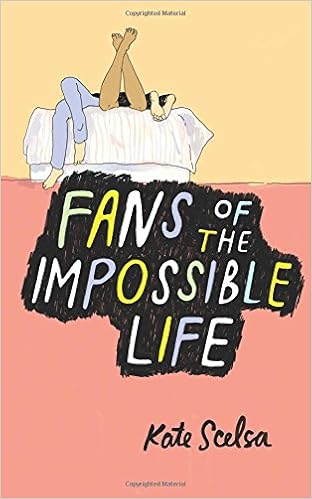After losing time at public school due to a lengthy depression, Mira has to switch to a private school. Her bestie Sebby (for Sebastian) sort of tags along. He's a foster kid, and his foster mom has her hands full with Sebby's foster sibs, so he more or less gets away with it. Mira is slow to make friends, even with a neighbor at St. Francis Prep, and she ends up hanging out with fellow loner Jeremy.
Jeremy, too, had an incident that kept him out of school--homophobic hate speech on his locker. Many of the characters in this novel are queer, including Jeremy's dads, and lovelorn Rose, who also joins Mira, Sebby, and Jeremy's clique. The story is told in three narratives: Jeremy's first person, Sebby's second, and Mira's third. I found this conceit a little showy at first, but came to appreciate how it echoed each character's mind and distance from themselves.
Sebby, speaking in the "you" is the only poor kid in the story. The others, even with their struggles with mental health and marginalized queer identities, have more of a chance of surviving teenhood. The other primary character, the students' beloved teacher Peter, doesn't have his own narrative, and in the end, he's got his own troubles, because school administrators are monsters.
Some passages I bookmarked that touched me in some way:
Desire and consummation uninterrupted by something as crass as money changing hands.
That's Sebby, about an adult who gives him a blow job now and again at the mall, and his inability to somehow pay the guy back, or even make him happy by allowing the man to give him gifts.
And Mira on her depression:
Morning came aggressively, glaring at Mira through the space between the curtains. She had slept, at least. And now she was awake. That was the way that it was supposed to happen.
Suriving herself was a bittersweet victory. It meant that some part of her had lost.
Jeremy feels the metal wrinkles of a blue tube of paint in his hand. "Metal wrinkles" that's so true and evocative, like something that can't be fixed, but still has an appeal.
And Sebby again, toward the end:
You thought of the beautiful privilege of having normal problems.
